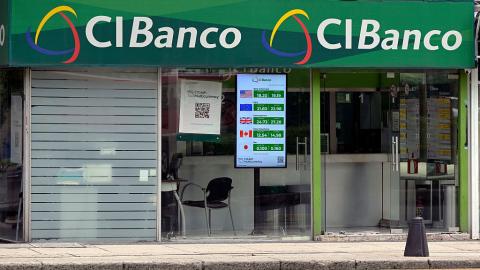
The U.S. is granting a reprieve to three Mexican financial firms recently sanctioned for their alleged role in helping launder cartel money.
Concretely, the Treasury Department noted that the Claudia Sheinbaum administration is making progress to address the matter, and will grant an additional 45 days before ta ban on fund transfers with the three companies goes into effect.
Now, the measures targeting CIBanco, Intercam Banco and brokerage Vector Casa de Bolsa will go into effect on September 4.
"Treasury will continue to take every action necessary to protect the US financial system from abuse by illicit actors and target the financing of transnational criminal organizations and narcotics traffickers," said Andrea Gacki, director of the department's Financial Crimes Enforcement Network (FinCEN), in a statement.
Bloomberg noted that the decision sparked chaos in the country. Even though the Treasury Department said the impact would be minimal, companies in both the U.S. and Mexico immediately cut off businesses with the institutions.
The actions mark the first use of authorities granted under the Fentanyl Sanctions Act and the FEND Off Fentanyl Act, which gives the Treasury expanded powers to target money laundering tied to the trafficking of fentanyl and other synthetic opioids, including operations run by drug cartels.
"Through the first use of this powerful authority, today's actions affirm Treasury's commitment to using all tools at our disposal to counter the threat posed by criminal and terrorist organizations trafficking fentanyl and other narcotics," said Treasury Secretary Scott Bessent when initially announcing the decision.
The Treasury said CIBanco helped launder money for multiple Mexican cartels, including the Cártel Jalisco Nueva Generación (CJNG), Beltrán Leyva Organization and Gulf cartels. Officials said the bank "facilitated procurement" of fentanyl precursor chemicals shipped from China by processing more than $2.1 million in payments.
Vector was accused of laundering money for the Sinaloa and Gulf cartels, including facilitating $1 million in payments for fentanyl-related chemicals. The Treasury also claimed the Sinaloa Cartel used Vector to send bribes totaling more than $40 million to former Mexican Security Secretary Genaro García Luna, who was sentenced last year to over 38 years in prison for his role in a cartel-linked corruption scheme.
Intercam, the third institution named, was accused of facilitating $1.5 million in payments for fentanyl precursor chemicals, similar to the other two banks.
Less than 24 hours after the sanctions were announced, Mexican President Claudia Sheinbaum said the United States has yet to provide evidence supporting the allegations despite repeated requests from her administration.
© 2025 Latin Times. All rights reserved. Do not reproduce without permission.





